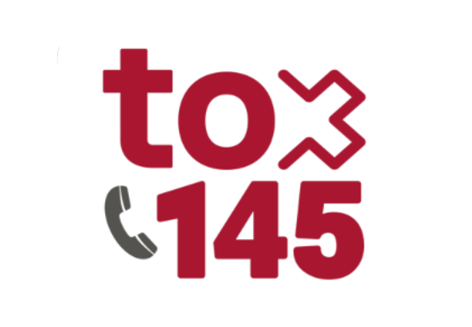The Swiss Tox Info Suisse (poisoning control centre) is available 24/7 for professional medical advice regarding poisoning and is part of the Swiss emergency numbers.
You should call the tox centre when there is a risk of poisoning or you see symptoms of poisoning.
When calling the tox centre, try to have the following information ready:
- Who: age, body weight, gender, any known previous illnesses
- What: substance, product (information from label, danger symbols), plant or animal related to the poisoning, if possible take a photo
- How much: estimate the amount
- When: estimate how much time has passed since the poisoning
- Anything else: any first symptoms, first steps taken
- Where: phone number for call-back and location of affected person
Poisons can be chemicals, medications, drugs, poisonous plants, mushrooms, environmental poisons, animals, and many more.
40% of the calls at the tox centre concern children up to 4 years of age and approx. 50% adults older than 18 years old. The rest is for older children and adolescents, and poisoning of animals.
Poisoning in toddlers and children is primarily through cosmetics, cleaning products, and cigarettes. Luckily serious intoxications are rare. Amongst adults and adolescents accidental and incidental (suicidal) ingestions are equally common.
GENERAL FIRST AID MEASURES
After ingestion (only if the affected person is still responsive)
- Give water, tea or diluted syrup, tea or syrup to drink. Approx. 100 to 200ml, in case of foaming substances only a sip.
- In case of corrosive substances give fluids as quickly as possible until a maximum 30 minutes after ingestion.
- Give activated charcoal or anti-foaming agents only after medical recommendation.
After inhalation
- Provide plenty of fresh air. Pay particular attention in closed rooms, silos and mines.
- Calm the patient.
- Note any dangers and risks for rescuers.
After skin contact
- Remove any contaminated clothes as quickly as possible. Generously rinse the affected skin area under running water.
- If the skin is not burnt or corroded, wash the skin thoroughly with water and soap.
After splashes into the eye
- Immediately rinse the eye under running water for at least 10 minutes. Ensure the eyelids are open the entire time or pull them gently apart if necessary.
- Tilt the head slightly to the side of the injured eye while rinsing to avoid contamination of the not affected eye.
In case of unconsciousness or respiratory or cardiac arrest
- Call 144 (ambulance).
- If necessary remove any foreign objects from the patient’s mouth or throat (dentures, remains of tablets, vomit).
- Loosen any tight clothing.
- In case of unconsciousness and normal breathing – turn into recovery position
- In case of unconsciousness and no breathing – start CPR
Risk substances
- Foaming agents (dishwashing detergents, cleaning products, shampoos) irritate mucous membranes and can cause vomiting. Vomit or foam can get into the airways and cause damage.
- Special cleaning agents (drain cleaner, oven cleaner) can cause serious burns.
- Petrol, cellulose thinner (Nitroverdünner), turpentine substitute (Terpentinersatz) or petroleum can cause vomiting and lead to chemical pneumonia.
- Antifreeze causes kidney damage even in the smallest quantities. Immediate in-hospital treatment is required.
- Alcohol can lead to serious intoxications. Perfumes, cosmetics and cough mixtures also contain alcohol.
- Children like to “try” cosmetics like creams or haircare products but rarely lead to serious intoxications.
- Talcum powder can damage the längs if accidentally inhaled. Infants playing with talcum powder boxes are particularly at risk.
- Button batteries in children’s toys can cause serious damage of the food pipe (oesophagus) if swallowed.
- Even small quantities of nicotine are dangerous for children. Cigarettes should be stored inaccessible for children. Especially dangerous is nicotine water, cigarette buds in beer or other liquids at parties.
- Medications can cause severe intoxications, especially heart medication of visiting grandparents.
- Children often try plant parts including leaves and berries. If the plant is not known, use apps or contact the Tox centre for help.
- Mushrooms can cause life-threatening intoxications. Keep any remaining mushroom parts to help with identification. Toxicologists at the Tox Centre can advise whether immediate in-hospital treatment is necessary. Contact the Swiss Mushroom Identification Association for advice and to have privately mushrooms be checked before consumption.
Posted on September 09, 2019 by Luitgard Holzleg
This entry was posted in Blog and tagged child poisoning, emergency services, giftnotruf, intoxication, mushrooms, poison, poisoning, poisoning in children, poisons, preventing poisoning, Switzerland, toxicology poisoning in pets, vergiftung, vergiftung bei kindern, vergiftungnotfälle, vergiftungserscheinungen, vergiftungsgefahr.. Bookmark the permalink.

